
Pour des horizons technologiques et numériques responsables : l’éducation, la santé et les villes en transformation
Programme
Thursday 10th of October 2024
| Session 1 : Openning talk Session Chair : Mounia Zaidi Salle : F 001 | |
| 9h30-10h15 | Title: Data security: responsabilites and challenges Invited speaker: Karim Zkik |
| 10h15-10h30 | Coffee break |
| Session 2 : Challenges and Risks of Digital Technology in Higher Education Session Chairs : Abir Karami and Charles Yaacoub Salle : F 001 | |
| 10h30-11h15 | Title: Chronique d’un futur annoncé : vers une prise en compte de la sobriété numérique dans l’utilisation des technologies éducatives Invited speakers: Nicolas Szilas, Sophie Varone, Gaëlle Molinari |
| 11h15-11h40 | Title: Designer un outil pédagogique pour aborder de façon systémique la transition écologique dans la ville Authors: Sylvie Lerouge, Victoria Sachsé |
| 11h40-12h05 | Title: Explanatory study on women usage of digital learning platforms Authors: Mourad Ellouze, Abir Karami, Marion Lauwers |
| 12h05-12h30 | Title: Trajectoire des projets structurants en innovation pédagogique et numérique de l’ICL Invited speaker : Catherine Demarey |
| 12h30-14h00 | Lunch Break |
| Session 3 : Prediction and Prevention: What are the Challenges for Healing? Session Chairs : Alban Bailliez and Jean-Philippe Cobbaut Salle : LW 304 | |
| 14h00-14h25 | Title: Deep Learning Approaches for the Classification of MRI Images in Multiple Sclerosis Detection Authors : Marwan Al Sidani, Rita YOUNES, Roy ABI ZEID DAOU |
| 14h25-14h50 | Title: Effets des perturbateurs endocriniens aux âges les plus vulnérables : comprendre et agir pour protéger la santé Authors : Patricia Rannaud-Bartaire |
| 14h50-15h15 | Title: Evaluation des implications éthiques de l’utilisation de la télémédecine pour soutenir les patients atteints de sclérose latérale amyotrophique (SLA) à un stade avancé Authors : Jean-Philippe COBBAUT, Alain Loute, Irène Labbe-lavigne, Véronique Danel-Brunaud, Rozenn Leberre |
| 15h15-15h40 | Title: Identifying the people-environment transaction characteristics of dementia-friendly spaces – Field observations in Hungarian nursing homes Authors : Bálint Balázs, Barbara Fogarasi, Attila Kurucz, Emőke Bukovenszki, Violetta Toth-Varga, Andrea Dúll |
| 15h40-16h05 | Title: Questions pratiques et limites éthiques en milieu oncologique. Le cas de la plateforme numérique d’un centre de référence régional en cancérologie Authors : Alexandra Caria |
| 16h05-16h20 | Coffee break |
| 16h20-17h20 | (A l’occasion des 40 ans du CEM) Titre: Au carrefour de la santé numérique et de la santé écologique : comment repenser la bioéthique ? Invited speaker : Marie-Hélène Parizeau |
Friday 11th of October 2024
| Friday 11th of october 2024 | |
| Session 4: Citizen Participation, Science, Technology, and Art for Sustainable Cities Session Charis : Ana Ruiz Bowen, Vedrana Ikalovic, Rania Wehbi Salle : LW 304 | |
| 9h00-9h15 | Title: AI-Driven Sustainability: Revolutionizing Urban Infrastructure and Environmental Management Authors : Maram Shehadeh |
| 9h15-9h30 | Title: A Conceptual Framework for GIS-Integrated Digital Twins to Enable Collaborative and Sustainable Urban Construction Authors : Firouzeh Fazel |
| 9h30-9h45 | Title: Achieving comprehensive sustainability in architectural practice: identifying key obstacles and defining objectives Authors : Egor SKIBA |
| 09h45-10h00 | Coffee break |
| 10h00-10h15 | Title: A visual method to assess the condition of green infrastructures, case study in the streets of Montreal, Canada Authors : Aurian LE GIGAN |
| 10h15-10h30 | Title: Evolution of the Neighborhood Concept Pertaining to Urban Life and Sustainability Authors : Majd AL JURDI |
| 10h30-10h45 | Title: Unfolding the spatial and socio-economic dynamics of urban structures for more resilient Hungarian cities Authors : Bálint Balázs, György Alföldi, Andrea Dúll |
| 10h45-11h00 | Coffee break |
| 11h00-11h15 | Title: Sites of Co-presence Authors : Andrew Vallance |
| 11h15-11h30 | Title: Urban Plan of the Sarajevo Urban Area for the period 2016 – 2036 Authors : Adi COROVIC, Natasa PELJA |
| 11h30-11h45 | Title: EL CLOT SPOT PROJECT Authors : Guilherme MAGLIO, Jenny HEDEN MALM |
| 11h45-12h45 | Round table title : Citizen participation, science, technologies and arts for a sustainable city Invited participants : Andrew Vallance, Guillherme Maglio, Jenny Heden Malm, Adi Corovic |
Résumé des communications
Entités organisatrices
LITL – Laboratoire Interdisciplinaire des Transitions de Lille (Faculté de Gestion, Economie et Sciences ; JUNIA)
Ethics EA 7446 – Centre d’Éthique Médicale
GHICL – Délégation à la Recherche Clinique et à l’Innovation (DRCI)
Correspondants Scientifiques
Alban Bailliez, Médecine Nucléaire Faculté de Médecine, Maïeutique, Sciences de la Santé, Humanitep UF5881, Université Catholique de Lille, GHICL
Jean-Philippe Cobbaut, Centre d’éthique Médicale, ETHICS, Université Catholique de Lille
Abir Karami, LITL, Faculté de Gestion, Économie et Sciences, Université Catholique de Lille
Ana Ruiz Bowen, LITL, JUNIA, Université Catholique de Lille
Mounia Zaydi, LITL, JUNIA, Université Catholique de Lille
Comité scientifique
Ana Ruiz-Bowen – Smart & Resilient Cities LITL – Junia, Université Catholique de Lille (Femme, Espagne)
Vedrana Ikalovic – Assistant Professor LITL – Junia, Université Catholique de Lille (Femme, Bosnie-Herzégovine)
Rania Wehbi – Assistant Professor LITL – Junia, Université Catholique de Lille (Femme, Liban)
Abir Karami – Assistant Professor LITL – Faculté de Gestion Économie et Sciences, Ecole du Numérique, Université Catholique de Lille (Femme, France)
Charles Yaacoub – Professor LITL – Faculté de Gestion, Economie et Sciences, Université Catholique de Lille (Homme, Liban)
Belhassen Zouari – Professor LITL – FGES, Ecole du Numérique, Université Catholique de Lille (Homme, France)
Mounia Zaydi – Assistant Professor LITL – Junia, Université Catholique de Lille (Femme, Maroc)
Alban Bailliez – Professeur GHICL, Faculté de Médecine, Maïeutique et Sciences de la Santé, Université Catholique de Lille (Homme, France)
Jean-Philippe Cobbaut – Professeur Centre d’Ethique Médicale – Laboratoire ETHICS, Université Catholique de Lille (Homme, Belgique)
Partenaires nationaux et internationaux
Arts University Bournemouth, UK (projets artistiques avec les communautés)
Engineering, VIA University College, Denmark (économie circulaire et communautés)
Architecture HFT Stuttgart, Germany (villes intelligentes)
Economy, UB University of Barcelona, Spain (économie durable et inclusion)
UPHF : partenaires sur plusieurs projets PIA co-porté avec l’UCL sur les questions de l’innovation pédagogique et l’utilisation du numérique dans ce sens
Université KU-Leuve : Co-encadrement d’un sujet de thèse UCL – KU-Leuven sur la modélisation de la simulation des parcours apprenants axés compétences
Équipe SICAL du LIRIS : Équipe de recherche active sur les EIAH (Environnements Informatiques pour l’Apprentissage Humain) avec des collaborations et publications communes dans le passé.
ATIEF : Associations des technologies de l’information pour l’éducation et la formation
Society for Learning Analytics Research
Focus Keynotes & Speakers
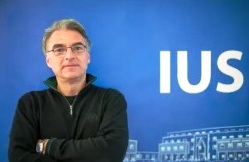
Adi Ćorović is an assistant professor at the Architecture Program of the International University in Sarajevo and Expert for the architectural heritage in the Commission to Preserve National Monuments of Bosnia and Herzegovina, where he carried out more than 85 researches, including research related to the Historical urban nucleus of Sarajevo.
He coordinated architectural heritage protection projects financed in large part by the Special Fund of the American Ambassadors in BH for cultural heritage, including the Preventive Conservation of the collections of the National Museum of BH, phase 2. In 2018, after the completion of three phases of the Red Cross building restoration project in Sarajevo, the President of the Republic of Italy awarded him the Knight of the Republic of Italy award. In 1995, he won the First Prize for the documentary film « Miracle in Milan », which deals with the themes of urbicide and the crisis of the city, at the International Festival in Milan.
He publishes scientific works in professional journals and participates in international conferences and projects related to the areas of architectural heritage and urbanism.
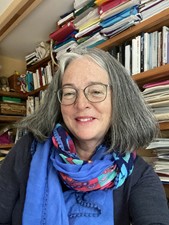
Marie-Hélène Parizeau est professeure titulaire à la faculté de philosophie de l’Université Laval, à Québec, et y enseigne la philosophie de la technique, la bioéthique et l’éthique de l’environnement depuis 1987. De 2003 à 2010, elle a été titulaire de la Chaire de recherche senior du Canada en bioéthique et en éthique de l’environnement. Elle a été présidente de la COMEST (Commission mondiale de l’éthique de la science et de la technologie) de l’UNESCO de 2015 à 2019, et elle a coordonné les rapports sur l’intelligence artificielle, la robotique, l’éthique de l’eau et l’éthique des changements climatiques.
Elle a été également membre de la Commission de l’éthique en science et en technologie (CEST) du Gouvernement du Québec de 2010 à 2015.
Elle a publié de nombreux articles et coordonner plusieurs ouvrages aux Presses de l’Université Laval, dans la collection « Bioéthique critique » qu’elle dirige, dont le dernier avec J A. Gagnon en 2021, De la médecine technicienne à la santé écologique. Repenser la bioéthique. Elle prépare actuellement un ouvrage collectif intitulé, Les villes intelligentes : le mirage numérique ? Perspectives philosophiques.
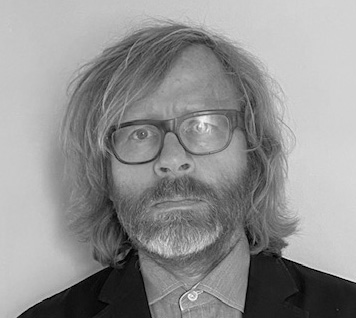
Andrew Vallance is MA Film Practice course leader and associate professor at Arts University Bournemouth.
He is also an artist, curator and writer. He co-founded Contact in 2013, developing numerous projects, initially Assembly: A Survey of Recent British Artists’ Film and Video, 2008-13 (Tate Britain) and most recently the publication Film Talks: 15 Conversations on Experimental Cinema, which generated a series of film events, culminating with a North American tour. His research predominately explores independent artist and experimental film practices, modes of enquiry and engagement, the development of sites of co-presence that can enhance participation, subject awareness and support related communities.
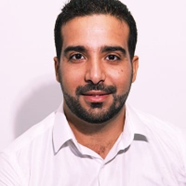
Karim ZKIK is an Associate Professor of Information Systems and Cybersecurity at Rennes School of Business, France. In 2024, he earned his Habilitation à Diriger des Recherches (HDR) from the University of Angers, France, after completing his Ph.D. in Computer Science at Mohammed V University of Rabat in 2018. He also holds an engineering degree in Network and Telecommunications from the National School of Applied Sciences in Safi, obtained in 2013.
Karim’s research focuses on the security of networks and information systems, particularly on Blockchain, Security of industrial systems, authentication and data privacy in cloud computing, the Internet of Things (IoT), and software-defined networks (SDN). He has published extensively in prestigious journals such as Computers & Industrial Engineering, International Journal of Logistics Research and Applications, Journal of Network and Computer Applications, Production Planning & Control, International Journal of Production Research, Journal of Cleaner Production, and many others.
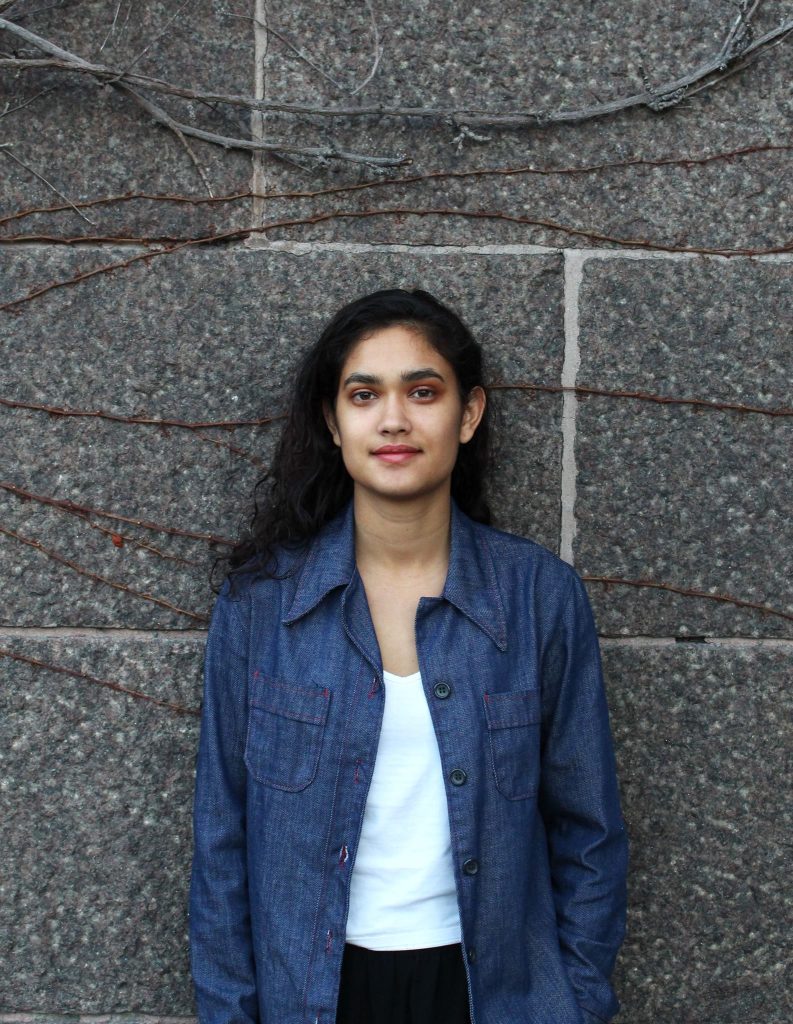
Jenny Hedén Malm is a project manager at Ignite Sweden and co-founder of Fanfaluca Collective. She holds a Master of Architecture (M.Arch) from KTH Royal Institute of Technology, where she focused on regenerative design, and speculative narratives. In her role at Ignite Sweden, Jenny leads innovation processes aimed at increasing the implementation of cutting-edge solutions, particularly within the public sector.
Her expertise spans a variety of complex multi-stakeholder projects, including net zero city initiatives. Jenny is also a board member of Luleälvens Vattenråd, a non-profit organization dedicated to advocating for sustainable water management in the Lule River Valley.
In addition to her work at Ignite, Jenny’s projects with Fanfaluca Collective investigates the transformative power of architecture through ephemeral installations and place based interventions to inspire dreaming and imagination.
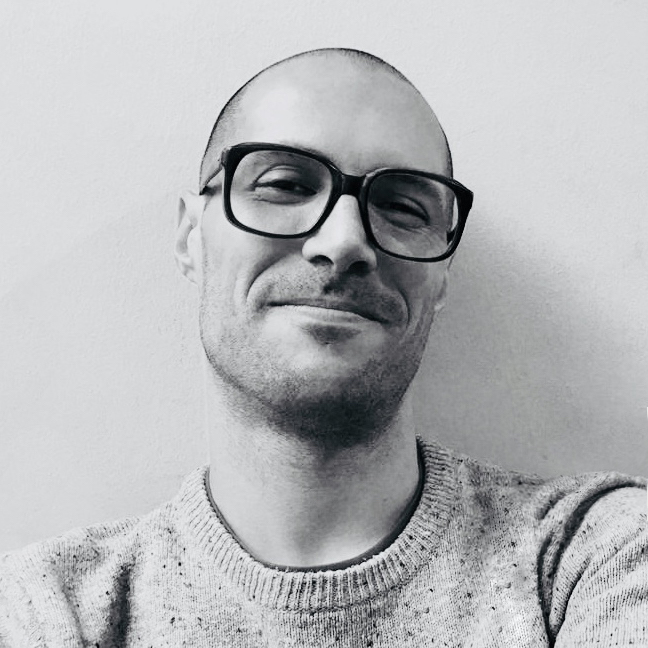
Guilherme Maglio is a multidisciplinary designer and researcher based in Barcelona. His current work focuses on the intersection of human-centered design, participatory processes, and urban interventions to promote regenerative urbanism.
With over a decade of experience in the creative industry, he holds a Master’s in Service Design from BAU Centre Universitari d’Arts i Disseny. He has primarily worked with startups, leading creative teams across four continents in product development and designing both digital and physical experiences.
His personal projects explore cultural identity, visual representation, and urban spaces, and have been showcased at events such as the Slovenian Biennal of Design (Fundacija Brumen), the Slovenian Biennal of Textile Art (Layerjeva Hiša), Adobe Max 2019, and the 2024 Setmanes d’Arquitectura de Barcelona festival.’
